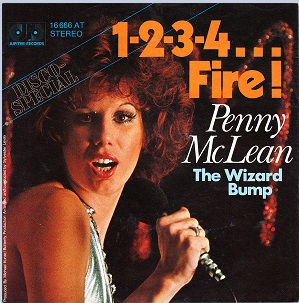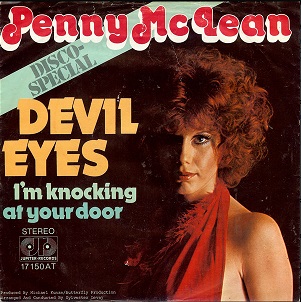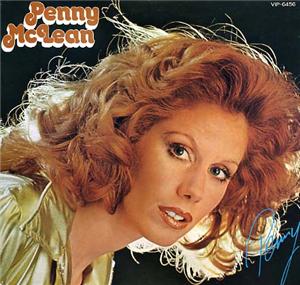
Donald McLean III is an American singer-songwriter, best known for his 1971 hit song "American Pie", an 8-and-a-half-minute folk rock "cultural touchstone" about the loss of innocence of the early rock and roll generation. His other hit singles include "Vincent", "Dreidel", a rendition of Roy Orbison's "Crying", a rendition of the Skyliners' "Since I Don't Have You", and "Wonderful Baby".

"American Pie" is a song by American singer and songwriter Don McLean. Recorded and released on the American Pie album in 1971, the single was the number-one US hit for four weeks in 1972 starting January 15 after just eight weeks on the Billboard charts. The song also topped the charts in Australia, Canada, and New Zealand. In the UK, the single reached number 2, where it stayed for 3 weeks, on its original 1971 release and a reissue in 1991 reached No. 12. The song was listed as the No. 5 song on the RIAA project Songs of the Century. A truncated version of the song was covered by Madonna in 2000 and reached No. 1 in several countries, including the United Kingdom, Canada, and Australia. McLean's combined version is the fourth longest song to enter the Billboard Hot 100, in addition to being the longest song to reach number one. Due to its exceptional length, it was initially released as a two-sided 7-inch single. American Pie has been described as "one of the most successful and debated songs of the 20th century".

Gertrude Wirschinger, better known as Penny McLean, is an Austrian vocalist who initially gained acclaim with the disco music act Silver Convention, but also had exposure as a single recording artist. As a solo singer, she is most remembered for her million seller "Lady Bump". She is also an author.

Alexander James McLean is an American singer, songwriter, actor, dancer, and model. He is a member of the vocal group the Backstreet Boys.

American Pie is the second studio album by the American singer-songwriter Don McLean, released by United Artists Records on 24 October 1971. The folk/rock album reached number one on the Billboard 200, containing the chart-topping singles "American Pie" and "Vincent." Recorded in May and June 1971 at The Record Plant in New York City, the LP is dedicated to Buddy Holly, and was reissued in 1980 minus the track "Sister Fatima". The album was released to much acclaim, later being included in the book 1001 Albums You Must Hear Before You Die.

"Crying" is a song written by Roy Orbison and Joe Melson for Orbison's third studio album of the same name (1962). Released in 1961, it was a number 2 hit in the US for Orbison and was covered in 1980 by Don McLean, whose version went to number 1 in the UK.
"Killing Me Softly with His Song" is a song composed by Charles Fox with lyrics by Norman Gimbel. The lyrics were written in collaboration with Lori Lieberman after she was inspired by a Don McLean performance in late 1971. Lieberman released her version of the song in 1972, but it did not chart. In 1973 it became a number-one hit in the United States, Australia and Canada for Roberta Flack, also reaching number six in the UK Singles Chart. In 1996, Fugees recorded the song with Lauryn Hill on lead vocals, their version became a number-one hit in twenty countries. The version by Flack won the 1974 Grammy for Record of the Year and Best Female Pop Vocal Performance, and the version by Fugees won the 1997 Grammy for Best R&B Performance by a Duo or Group with Vocal. The song has been covered by many other artists. Both versions by the Fugees and Roberta Flack were placed on the 2021 revised list of Rolling Stone's 500 Greatest Songs of All Time.

"Vincent" is a song by Don McLean written as a tribute to Vincent van Gogh. It is often erroneously titled after its opening refrain, "Starry, Starry Night", a reference to Van Gogh's 1889 painting The Starry Night.

Delroy Easton "Bitty" McLean is a British reggae, lovers rock and ragga singer. He is best known for his three UK Top 10 hits in 1993 and 1994, including his debut offering "It Keeps Rainin' ".

Tapestry is the debut studio album by American folk singer Don McLean. The album was originally released by Mediarts Records but was re-launched in 1971 by United Artists after United Artists' purchase of Mediarts. The album was also reissued in 1981 on Liberty Records, but without including the song "Three Flights Up".
McLean is an English singer from Dagenham, east London. He was signed to Asylum Records and then Atlantic Records. His debut single "Broken" was released on 26 October 2009. The song was produced by The Schizofreniks and first released independently on 26 March 2007 on Schizofreniks Records, and has since then accrued over 20 million hits across major social networking sites, including YouTube and MySpace.
Nobody's Child may refer to:

"In for a Penny" is a song by the British rock band Slade, released in 1975 as the lead single from their sixth studio album Nobody's Fools. The song was written by lead vocalist Noddy Holder and bassist Jim Lea, and produced by Chas Chandler. It reached No. 11 in the UK, remaining in the charts for eight weeks.
"You Can't Blame the Train" is a song written by American singer-songwriter Terri Sharp. The original version was recorded by American singer-songwriter Don McLean in 1987, while the family country group The Hollanders recorded their own version in 1991.

"Lady Bump" was a pop disco single in the mid-1970s. It was a major hit for Austrian singer Penny McLean who was formerly with Silver Convention.

1-2-3-4... Fire! is a song by Penny McLean released as third single from her album Lady Bump in 1976. The single was successful and managed to appear in 6 charts worldwide in the year of its release.

"Devil Eyes" is a song by Penny McLean released as fourth single from her album Lady Bump in 1976. The song managed to appear in 2 charts worldwide. Justin Kantor from the website "AllMusic" cited "Devil Eyes" as one of the few enjoyable moments to be found in the Lady Bump album.

"Dance, Bunny Honey, Dance" is a song by Penny McLean released as the first single of her album Penny in 1977. The song managed to appear in two charts worldwide.

Lady Bump is the debut album of Austrian-born singer Penny McLean. It was released in 1975, while Penny was part of the group Silver Convention. The album was released months after her successful single "Lady Bump", and three more songs were released as singles and charted worldwide. The album managed to chart in 3 countries. This is the only McLean's album to be released in CD format, it was released in 1992 in Germany. McLean's two other albums were released without the label or the singer permission.

Penny is the second studio album by Austrian-born singer Penny McLean released in 1977. Three solo singles were released before the album launched: Nobody's Child, Zwischen Zwei Gefühlen and Dance, Bunny Honey, Dance, but only the last one was included in the final track list. At the same time, Penny also sang on Silver Convention, and the group's single: "The Boys from Liverpool" was released, after that she announcing her departure from the group. The album managed to chart in Sweden. Reviews for the album were mixed, and its second single didn't chart anywhere. An unofficial CD was released in Russia.
















